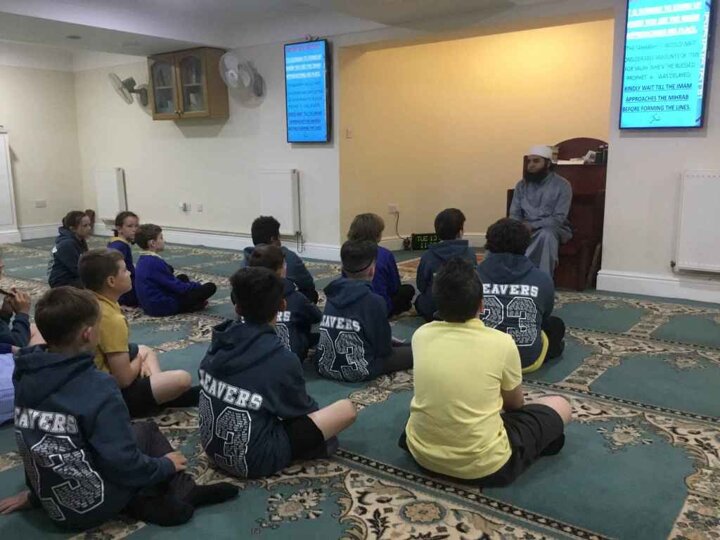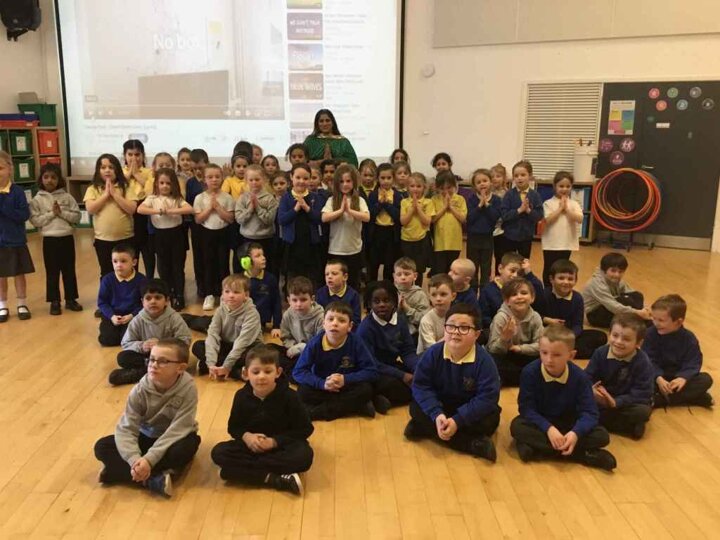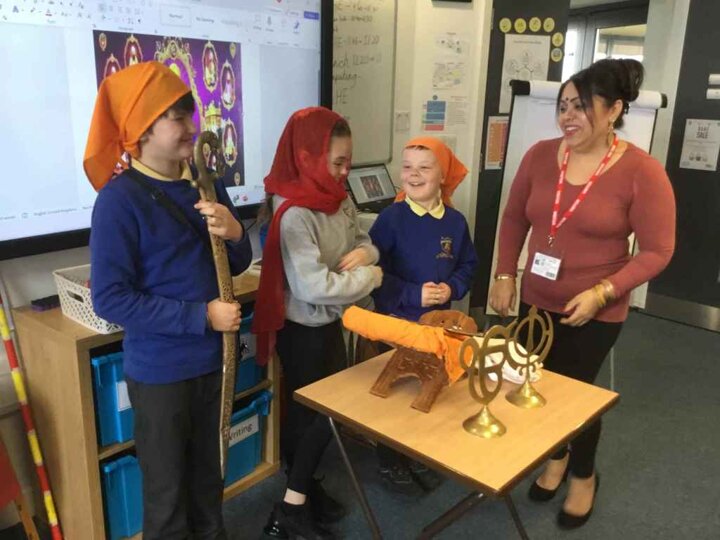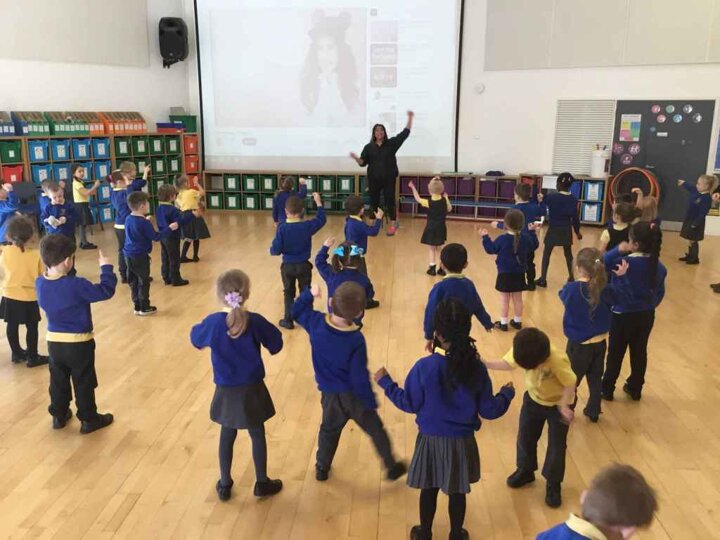
RE
Why do we learn RE?
- RE helps us understand and be aware of other religions and cultures in Blackpool, the UK and the rest of the world.
- RE develops our beliefs and values and teaches us about respect and empathy.
- RE helps us actively understand other people’s points of view.
Intent
RE is considered an important part of a child’s education, especially their early education, because it allows young people to develop their beliefs and values. It helps children understand the place of religion and belief in the world. It contributes educationally to the spiritual, moral, social and cultural development of all pupils, whether or not they are from a religious background.
At Devonshire Primary Academy, we seek to achieve the aims of our whole school vision through a rich RE curriculum. High-quality RE will support and develop pupils’ religious literacy. Pupils will be able to make sense of religion and world views around them and begin to understand the complex world in which they live. RE at Devonshire is about enabling pupils to become free thinking and critical thinkers who can make informed judgements about the important matters of religion and belief which shape the global landscape.
Through our curriculum children will learn about different religions, belief systems, festivals and rituals and, whenever possible, they will be able to visit places of worship. RE can enable pupils to build their sense of identity and belonging which helps them flourish within their community. It also teaches pupils to develop respect for others, including people with different faiths and beliefs and helps to challenge prejudice. Within our teaching of RE we seek to encourage empathy, generosity, and compassion thus prompting pupils to consider their responsibilities to themselves and others and to explore how they might contribute to their communities and the wider world. Our aim is that pupils will have a depth of knowledge and have the ability to hold balanced and well-informed conversations and opinions about religion and worldviews.
Implementation
Our RE curriculum is ambitious. We address all aspects of the Lancashire SACRE curriculum. Knowledge is interweaved over a number of years and seeks to build a deep understanding as pupils are able to build on prior learning and bring a new maturity each time it is visited. The importance of religious vocabulary is embedded throughout each topic of the RE curriculum. As pupils progress they will learn how individual aspects may conflict with each other and acknowledge that plurality exists in religious and non-religious worldviews which may lead to divergence in practice.
We begin with the religious aspects of our own community in Early Years, with open attitudes and an acknowledgement to be prepared to be flexible and responsible in planning to meet the needs of each particular cohort. Key Stage 1 builds on this foundation as children begin to explore stories, customs, festivals and rituals of four major religions. Each unit is planned and sequenced so that new knowledge and skills build on what has been taught before.
In Year 3 and Year 4 the curriculum builds on the foundation of religious knowledge and awareness. We have the first introduction of Humanism as a world view through the thematic unit ‘How and why do people try to make the world a better place’. This is explored in greater depth as pupils progress through the curriculum in KS2.
Year 5 and Year 6 consider the impact of beliefs and practices in greater detail and respond to more philosophical questions. During this key stage, pupils are taught the knowledge, skills and understanding through deeper enquiry into known religions.
Impact
At Devonshire, we envision RE curriculum impacting the pupils in the following ways:
- Extend their knowledge and understanding of religions and beliefs;
- To hold a wide knowledge and deep understanding across a wide range of religions and beliefs;
- Develop a religious vocabulary and interpret religious symbolism in a variety of forms;
- Reflect on questions of meaning, offering their own thoughtful and informed insights into religious and secular world-views;
- Develop a strong understanding of how beliefs, values, practices and ways of life within any religion cohere together;
- Explore ultimate questions of beliefs and values in relation to a range of contemporary issues in an ever-changing society; and
- Hold an ability to think for themselves and take initiative.
Surveys and questionnaires are used to gather pupils voices in relation to RE and, together with book scrutinises, observations and moderation, actions are targeted to further develop the RE curriculum.
Provision and Withdrawal
RE is provided for all pupils and is inclusive and broadminded. Children will learn about different religions and their traditions, practices and beliefs. RE promotes children’s tolerance and mutual respect in a diverse society.
Parents have the right to withdraw their child from RE lessons or any part of the RE curriculum. When this happens, the school have a duty to supervise the pupil but are not responsible for providing additional teaching or incurring extra cost.
Parents who withdraw their child from RE are responsible for organising alternative arrangements for their child to receive RE of the kind they believe is suitable. This RE could be provided to the school by the parent, though the child may be supervised in another year group, depending on staffing. Alternatively, the parent could organise this RE with an external provider, so long as this does not impact on the child’s attendance.
Whilst parents have the right to withdraw their child from RE lessons or any part of the RE curriculum, they should note that children may also encounter religions, beliefs and wider aspects of faith in other areas of the curriculum, from which there is no right of withdrawal.
If you wish to withdraw your child from RE, please request a meeting with the Headteacher, Mr Simm, and Subject Lead, Mrs McGinty.









